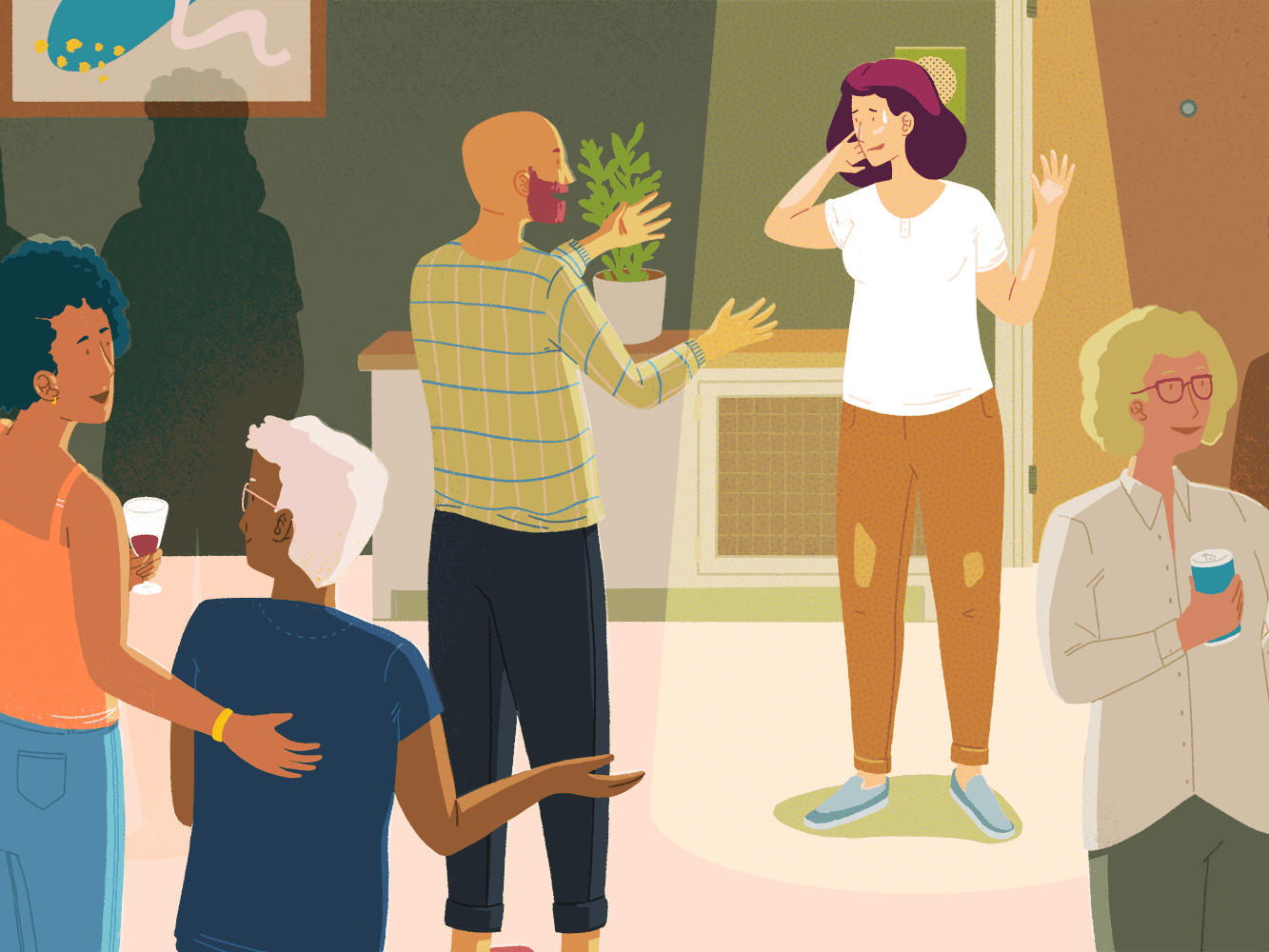In 2016, the number of people estimated to be suffering from mental health issues like depression and anxiety amounted to roughly 1.1 billion. Since then, numbers have likely continued to rise. Moreover, studies have also shown women especially on average are a) more likely to suffer from mental health issues, and b) less likely to talk about them. The taboo in Pakistan surrounding depression and anxiety disorders only serve to aggravate the individuals suffering even more. For the women who cannot seek out full time therapy, we’ve enlisted the help of a trained therapist. You sent us in your questions – here are the answers!

“Sometimes I’ll be sitting in a group of people and I won’t be able to get myself to talk much and if I do, I won’t be able to keep everyone engaged or entertained. Are there any social skills that can help me with this? How can I get better at talking to people? I get nervous and I don’t make sense, but I want to learn the art of a good conversation. Please help me.”

Shahrukh’s Response:
Dear Anon,
Over the years, the topic of nervousness and anxiety in the face of social situations has come up more times than I can count. You’re not alone here, and I can assure you that a lot of people you know will tend to feel similar to you. Often you may notice that you’re judging yourself, or overanalysing your interactions with others, and you might even have thoughts like: “Am I interesting enough?”/ “This person probably thinks I’m boring!”/ “Am I asking too many questions?”/ “Oh no, silence! I need to say something!” and so on!
Before we dive into the tips and tricks of social interactions, it’s important to remind yourself that it’s okay if you aren’t being “engaging” or keeping others entertained. Sometimes you might opt to keep to yourself and not talk as much, maybe even listen in on a conversation and that’s alright – there’s no need to push yourself into talking if you’re not feeling up to it. That all being said, if you’re looking to challenge yourself and practice the art of conversation, there are a few things you can keep in mind that can help you refine your social skills.
The Art Of Conversation: Beginner’s Guide
Let’s play out a hypothetical scenario that I’m sure you and several others have been in: you’re standing in a room full of people, and you’re approached by an acquaintance that you haven’t seen in a while, and it looks like they’re about to talk to you. What are some of the things you can bring in when talking to this person? Let’s have a look:
- Mirror body language: An old trick in the book is to try and mirror the other person’s body language (even their tone and frequency of talking). This is one way of having the other person unconsciously believe you’re engaged with what they’re saying. Make sure your body is as relaxed as possible, you’re making eye-contact and that your body is facing towards the person you’re speaking to. Also be sure to nod your head every now and then while they speak!
- Think of a few basic conversation starters: The go-to one is usually “what are you up to nowadays?” – it’s that’s usually a safe bet, so if anything, just stick with that and take it from there. Some other conversation starters would be simply complimenting their appearance, asking them why they’re at so-and-so social gathering, or if you’re meeting someone new for the first time, you can simply introduce yourself and ask about the other person.

- People aren’t judging you the way you think they are: Here’s the thing about most interactions: while you may believe you know what the other person is thinking, chances are you probably don’t, you’re essentially caught in a loop of guesswork. Try to be as kind and compassionate towards yourself during your conversations because trust me, most people are more concerned about what they say than about what you say. It’s human and natural to get nervous, so don’t hold that against yourself and no one else will either.
- Expressing curiosity towards what the person is talking about: If the person you’re speaking to is talking about their job, tap into your inner curiosity and ask questions around it. If they’re a teacher, you can ask them about the subject they’re teaching or even what made them want to become a teacher and how they’re enjoying being in the field, and so on.
- Be mindful of how many questions you’re asking: While questions are great, try to throw in small instances of your experience – in this case, you could share your thoughts on teaching, or even talk about how you remember your teachers. the idea is to just break the line of questioning so that the person doesn’t feel like they’re being interviewed for a job!
- For a group especially, speak a little louder: if you’re in a group, you may find yourself in a position where your voice might be drowning out. In these scenarios, try to speak as loudly and clearly as you can. You don’t need to dominate the group discussions, but just see where you can voice out what you want to say.
- Practice with people you feel comfortable with: it helps to be around people who you feel comfortable around – try to use some of the tips you just learnt about, and see how it feels for you.
- With all challenges comes a learning curve: Anon, as with any thing that’s out of your comfort zone, you need to allow yourself the space to stumble and fall; in fact, always allow space for that. You are learning a skill, and it will take its time to settle in completely. As I said before: be kind, be patient and be compassionate towards yourself.
Anon, as humans, we are built to be social, and as such I know how important it can be to develop skills around talking to others. Chances are you’re doing a better job than you think, and it’s important to acknowledge the little challenges you conquer every day that are well outside your comfort zone. I hope that you found the answers that you were looking for in this article. I wish you all the best on your journey towards healing! Best of luck and stay in your power!

The above article is written by Shahrukh Shahbaz Malik who is trained in humanistic integrative counselling at CPDD in the UK and currently has her own private practice in Karachi. The views expressed in this article are those of one expert. They do not necessarily represent the views of Mashion, nor do they represent the complete picture of the topic at hand. This article is for informational purposes only and is not a substitute for medical diagnosis, treatment or therapy.








What do you think?
You must be logged in to post a comment.